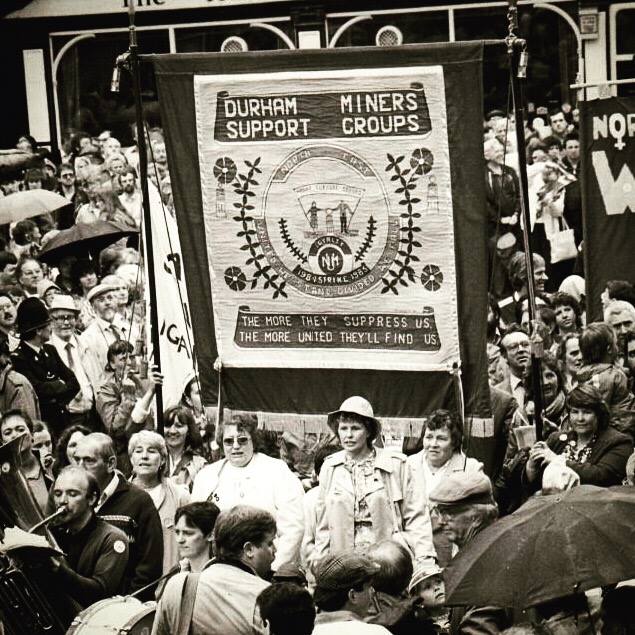As we commemorate the 40th anniversary of the miners’ strike in County Durham, it is essential to reflect on the profound impact this historic event had on the lives of the miners and their families; which, in the case of the team at Redhills, are our families; and our communities. The year-long strike, which began in 1984, was a testament to the resilience and determination of the mining community as they fought against the closures of coal mines, job losses, and the erosion of their way of life. This piece aims to provide an overview of the significance of this pivotal moment in history and direct you to other sources that explore the enduring legacy of the miners’ struggle.
The miners’ strike in County Durham was part of a larger nationwide protest against the Thatcher government’s plans to close unprofitable coal mines. The strike, which started in March 1984, brought together thousands of miners who courageously stood against the proposed pit closures that threatened their livelihoods. The dispute was marked by confrontations with the police, solidarity rallies, and a remarkable display of unity within the mining communities. The BBC have created an overview of the miners’ strike to provide a national perspective which you can read here.
Impact on communities:
The strike had a profound impact on the mining communities of County Durham. Families faced financial hardships, and the social fabric of these tight-knit communities was strained. The closure of mines meant not only the loss of jobs but also the loss of a way of life that had been deeply ingrained in the region for generations. The scars left by the strike are still felt today as the communities continue to grapple with the long-term effects on their economic and social well-being.
Ex-miner Stephen Fergus gives ITV his perspective on how the strike changed Easington forever.
Voices of the Miners:
To truly understand the impact of the miners’ strike, it is crucial to hear the voices of those directly affected. Many miners and their families have shared their experiences through interviews, documentaries, and written accounts.
Rachel Bullock of ITV recently spoke to Durham Miners Association General Secretary Alan Mardghum and Dave Temple about their experiences in the area 40 years ago https://www.itv.com/news/tyne-tees/2024-03-05/miners-strike-life-on-the-picket-line-from-the-people-who-were-there
The Durham Mining Museum provides firsthand narratives and historical context to the events of the strike.
Solidarity and Activism:
The miners’ strike was not only a local struggle but also a symbol of resistance against the broader economic and political changes occurring in the 1980s. Solidarity from other trade unions, activists, and community members played a crucial role in sustaining the miners’ fight. The Northern Echo’s archive provides a comprehensive look at the events and key figures involved in supporting the miners during this challenging time. As Dave Temple mentions in his interview above, the women were instrumental in supporting the striking miners, of which the Women Against Pit Closures movement was an integral part. We have recently celebrated their dedication on the 40th anniversary with a march and day of solidary in Durham City https://www.itv.com/news/tyne-tees/2024-03-05/they-were-equal-the-women-at-the-coalface-of-the-miners-strike
https://www.thenorthernecho.co.uk/news/24159167.durhams-womens-rally-celebrating-women-strikes/
Legacy and Remembrance:
Four decades later, the legacy of the County Durham miners’ strike endures. The communities affected by the closures have continued to be impacted by the loss of industry, and the memories of the strike remain an integral part of our collective identity here in County Durham. As we commemorate this milestone, it is essential to remember the sacrifices made by the miners and their families and to honour their resilience in the face of adversity.

